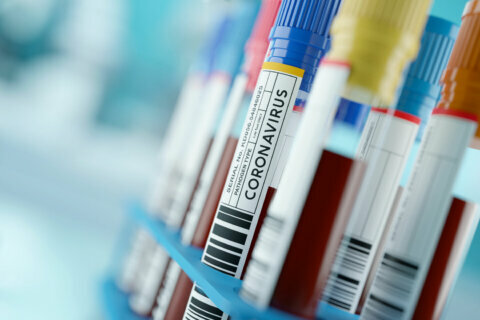Tests on a Maryland patient who was suspected of having the novel coronavirus have come back negative.
The person hasn’t been identified, but the Maryland Department of Health reported earlier this week that someone was being tested for the virus. On Thursday afternoon, the department’s website was updated to show that tests had come back negative.
The result comes on an otherwise grim day for news about the virus: The first case caused by person-to-person contact in the United States was reported on Thursday, and the World Health Organization declared the coronavirus a global health emergency after the number of cases grew tenfold in the space of a week.
And on Thursday, another person is being tested for the virus in Northern Virginia, the Virginia Department of Health said. No other information has been released about the patient.
That makes two possible cases in Northern Virginia; a George Mason University student is awaiting test results from the Centers for Disease Control and Prevention, which is conducting all tests. Two people are also awaiting test results in D.C.
So far, no confirmed cases have been reported in the District, Maryland or Virginia.
Towson University said Thursday that a professor who came in contact with a family member being tested for the coronavirus tested negative.
Coronavirus: What you need to know
The virus, centered in Wuhan, China, has struck 9,000 people in China, including 200 deaths. The virus has hit 18 other countries.
The World Health Organization on Thursday declared the outbreak a global emergency due to the rapid climb in cases.
“The triggering point [for declaring such an emergency] is … when you have sustained transmission from one person to another to another to another, in countries outside of the primary country, which is China,” said Dr. Anthony Fauci, director of the National Institute of Allergy and Infectious Diseases.
The risk remains low in the U.S., but that could change, said Fauci, citing flu outbreaks from years past.
“I don’t think the American public should be frightened, but they should realize that this is a serious situation,” he said in an interview with WTOP Thursday night. “To deny that would not be truthful.”
To add to precautions the U.S. State Department began advising against all travel to China due to the coronavirus outbreak on Thursday evening.
To keep up with the latest on coronavirus statuses within the region, check out each health department’s website:
Health officials have been saying that coronavirus is a family of viruses, most of which are minor, and that the best way to protect yourself against this new form of virus is the same as the methods that work against the other ones.
From the CDC:
- Wash your hands often with soap and water for at least 20 seconds. If soap and water are not available, use an alcohol-based hand sanitizer.
- Avoid touching your eyes, nose and mouth with unwashed hands.
- Avoid close contact with people who are sick.
- Stay home when you are sick.
- Cover your cough or sneeze with a tissue, then throw the tissue in the trash.
- Clean and disinfect frequently-touched objects and surfaces.
- Follow the CDC on Twitter for the latest announcements on the outbreak.
The medical director of Johns Hopkins Hospital’s biocontainment unit told WTOP on Wednesday that you’re more likely to come into contact with the regular flu, which is also a coronavirus, than the new kind.






